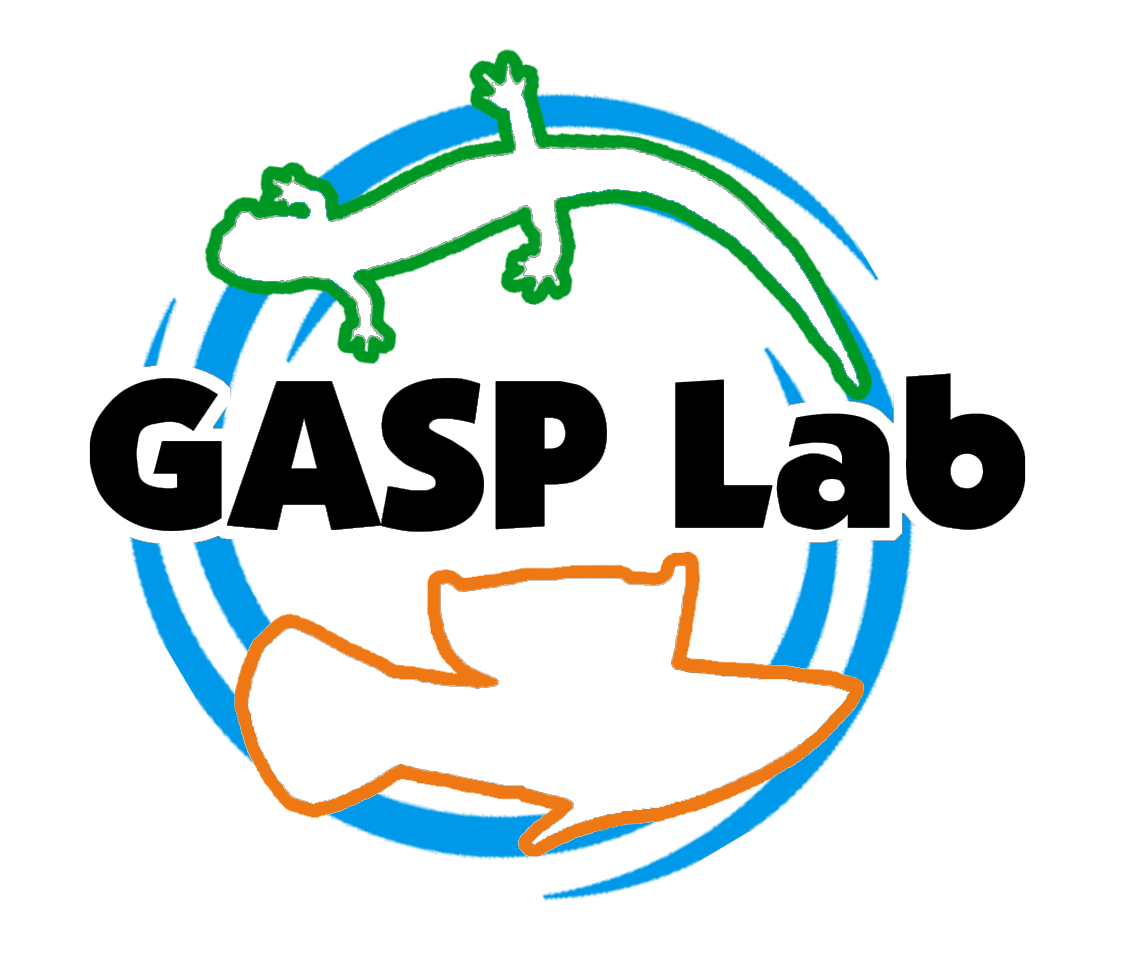The GASP (Gabor-Aspbury = GASP) lab research program spans conservation physiology to behavioral ecology.  We focus on the consequences of anthropogenic stressors on live-bearing fish and amphibian declines using a holistic framework that evaluates mechanisms (e.g., genetic and physiology) through function (e.g., evolutionary and conservation implications). We have also studied the historical forces of natural and sexual selection on speciation in a unisexual-bisexual species complex of live bearing fish from a behavioral and physiological standpoint. Recently, we have been expanding into translational health by exploring the potential of using alternative animal models (live-bearing fish) of prenatal stress to understand the developmental origins of adult health and disease.
We focus on the consequences of anthropogenic stressors on live-bearing fish and amphibian declines using a holistic framework that evaluates mechanisms (e.g., genetic and physiology) through function (e.g., evolutionary and conservation implications). We have also studied the historical forces of natural and sexual selection on speciation in a unisexual-bisexual species complex of live bearing fish from a behavioral and physiological standpoint. Recently, we have been expanding into translational health by exploring the potential of using alternative animal models (live-bearing fish) of prenatal stress to understand the developmental origins of adult health and disease. 

Our lab strives to celebrate and foster, creativity,
and
broad representation
Visit our Facebook page for lab news
and pictures from Instagram at #gasplabs
